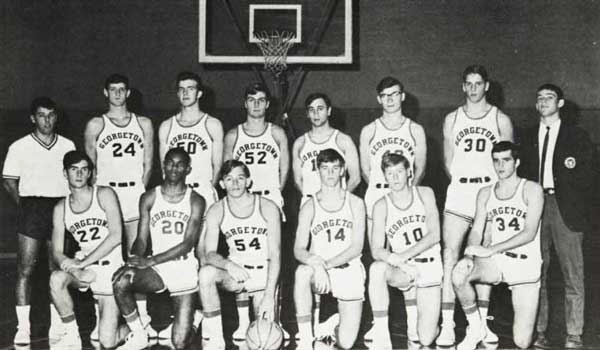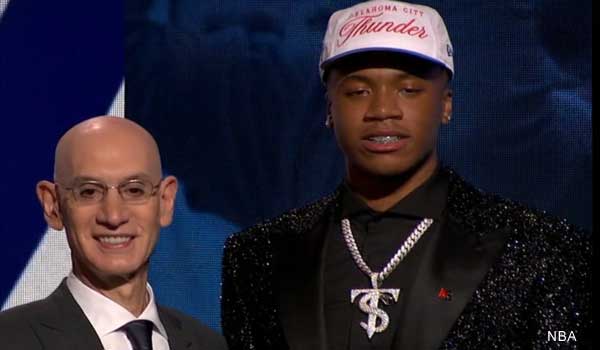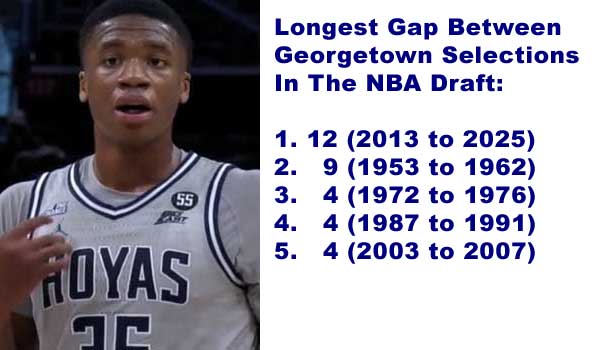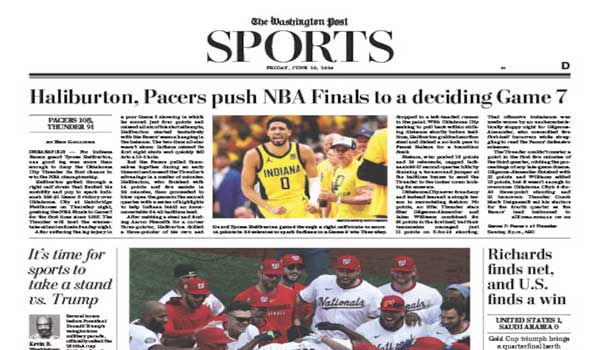Associate AD Leaving Georgetown

Associate athletic director Michael Hill (S'10), the longtime director of the men's basketball sports performance team, announced his departure after 21 years with the department.
"I could stay at Georgetown for the rest of my life, but I could leave tomorrow knowing that I gave it my heart and soul. That "tomorrow" has come and my time at Georgetown is done," he wrote on his personal account at LinkedIn.Hill joined Georgetown as a strength coach in August 2004 and was promoted to associate athletic director in 2010. He received the University's Vicennial Medal earlier this month in recognition of 20 years of service.
There has been no comment to date from the basketball office.
Georgetown 64th In Learfield Cup Rankings

Georgetown University finished 64th in the Learfield Directors Cup, a measure of post-season performance among Division I schools co-sponsored by the National Association of Collegiate Directors of Athletics and Learfield Sports.
The finish, down from a 53rd place finish in 2024, is based on a school's participation and progress through 20 NCAA men's and women's championship events. Georgetown scored points with NCAA tournament appearances in soccer, lacrosse, and track and field, but received no points in men's or women's basketball.A total of 303 of 362 Division I teams qualified for some post-season competition in 2024-25.
Big East schools include the following
1. Connecticut (63rd, up from 81st)
2. Georgetown (64th, down from 53rd)
3. Providence (87th, up from 95th)
4. Villanova (91st, down from 73rd)
5. Creighton (95th, up from 105th)
6. St. John's (115th, up from 152nd)
7. Marquette (140th, down from 129th)
8. Xavier (203rd, down from 178th)
9. Butler (220th, down from 210th)
10. DePaul (294th, down from 234th)
Seton Hall did not qualify for any post-season competition in 2024-25.
Georgetown's finishes since 1994 are below.
| Year | Finish | Among Big East Schools |
| 1994 | 47th | 3rd of 10 |
| 1995 | 44th | 3rd of 10 |
| 1996 | 55th | 2nd of 13 |
| 1997 | 63rd | 5th of 13 |
| 1998 | 62nd | 6th of 13 |
| 1999 | 45th | 3rd of 13 |
| 2000 | 55th | 4th of 13 |
| 2001 | 42nd | 3rd of 14 |
| 2002 | 51st | 3rd of 14 |
| 2003 | 61st | 5th of 14 |
| 2004 | 53rd | 3rd of 14 |
| 2005 | 74th | 6th of 16 |
| 2006 | 68th | 5th of 16 |
| 2007 | 76th | 7th of 16 |
| 2008 | 77th | 5th of 16 |
| 2009 | 84th | 7th of 16 |
| 2101 | 70th | 8th of 16 |
| 2011 | 55th | 6th of 16 |
| 2012 | 63rd | 6th of 16 |
| 2013 | 63rd | 4th of 15 |
| 2014 | 66th | 1st of 10 |
| 2015 | 59th | 3rd of 10 |
| 2016 | 72nd | 1st of 10 |
| 2017 | 72nd | 1st of 10 |
| 2018 | 93rd | 2nd of 10 |
| 2019 | 70th | 1st of 10 |
| 2021 | 63rd | 1st of 11 |
| 2022 | 70th | 2nd of 11 |
| 2023 | 67th | 1st of 11 |
| 2024 | 53rd | 1st of 11 |
| 2025 | 64th | 2nd of 11 |









